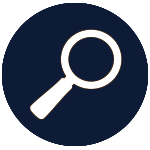
Guide index
 Library > Library guides > Databases > ClinicalKey
Library > Library guides > Databases > ClinicalKey
On this page
Related guides

Features:
User profiles can be used to download book chapter PDFs, access in-text videos, save searches, create alerts and enable mobile access for the ClinicalKey app.
 It is possible to download most book chapters within ClinicalKey to read offline.
It is possible to download most book chapters within ClinicalKey to read offline.
In order to download PDFs, you will need to create a separate ClinicalKey user profile [personal account] (see separate box). Once created, just log into using the link in the top-right of screen.
Note: This does not apply to journal article PDFs.
 ClinicalKey is a clinical search engine that employs a single search box that utilises keyword searching. Post-search, results may be narrowed/filtered as follows:
ClinicalKey is a clinical search engine that employs a single search box that utilises keyword searching. Post-search, results may be narrowed/filtered as follows:
 Learn more about Searching and Browsing on ClinicalKey
Learn more about Searching and Browsing on ClinicalKey
 Learn how to save articles, add tags and share content in ClinicalKey.
Learn how to save articles, add tags and share content in ClinicalKey.
Please Note: These features require that the user have a personal account in ClinicalKey so you can access your user profile (see the Create a user profile section above for further details).
To access your Saved Content:
ClinicalKey's Presentation Maker allows you to add content as soon as you find it – without interrupting your search.
 When you find images in ClinicalKey that you’d like to use in a presentation, you can save them for later use without leaving the results page. Images can be dragged and dropped from the search results list into Presentation Maker, or saved using the “Add to Presentation” button. You can also view, move and delete content within the Presentation Maker panel.
When you find images in ClinicalKey that you’d like to use in a presentation, you can save them for later use without leaving the results page. Images can be dragged and dropped from the search results list into Presentation Maker, or saved using the “Add to Presentation” button. You can also view, move and delete content within the Presentation Maker panel.

 ClinicalKey supports Internet Point of Care learning (IPoC), which is a certified Continuing Medical Education (CME) activity that allows physicians the opportunity to identify and research a topic relevant to their clinical practice. CME credit/time is available for the following content types: books, Clinical Overviews, and published journal articles.
ClinicalKey supports Internet Point of Care learning (IPoC), which is a certified Continuing Medical Education (CME) activity that allows physicians the opportunity to identify and research a topic relevant to their clinical practice. CME credit/time is available for the following content types: books, Clinical Overviews, and published journal articles.
Quick links
About ANZCA
Copyright © Australian and New Zealand College of Anaesthetists.